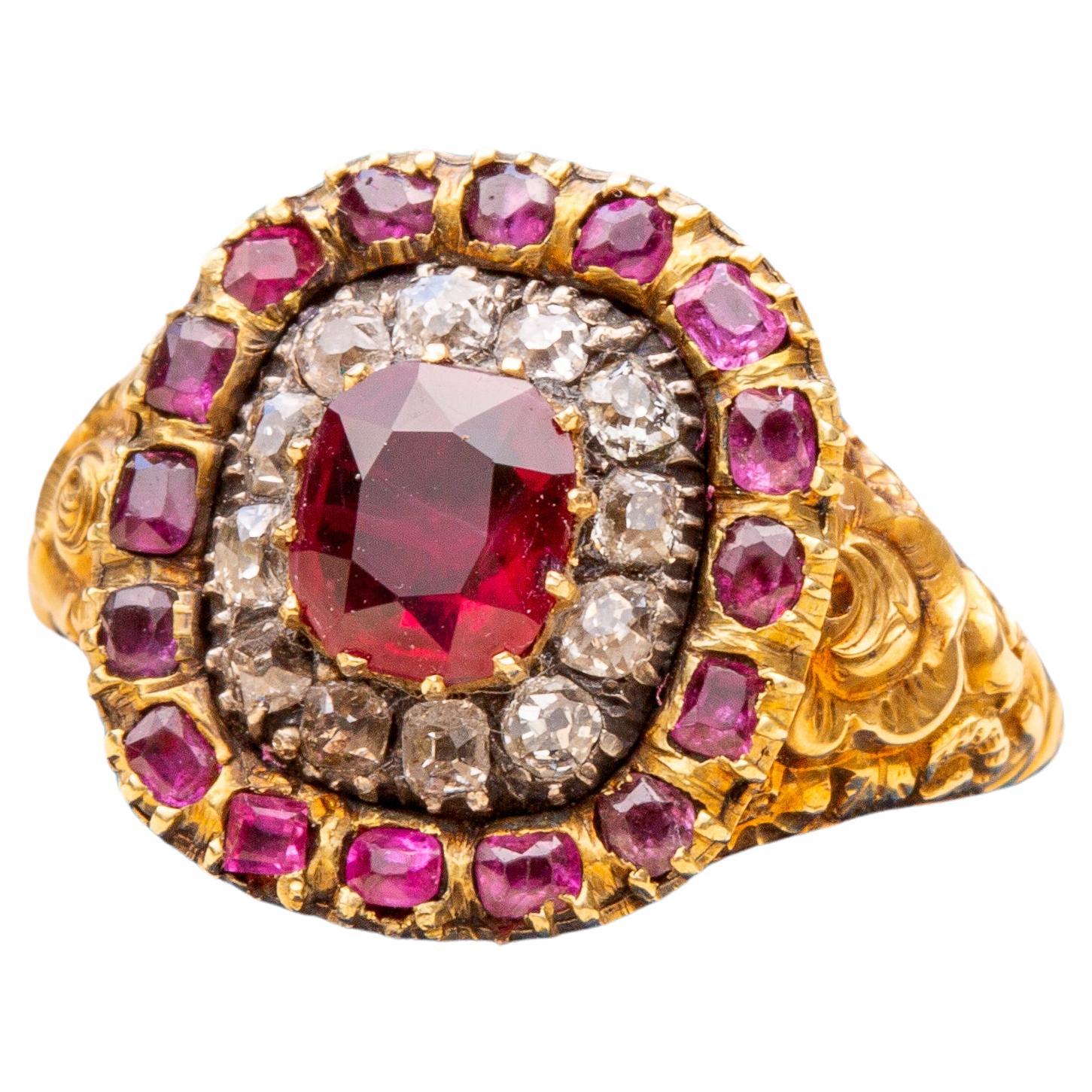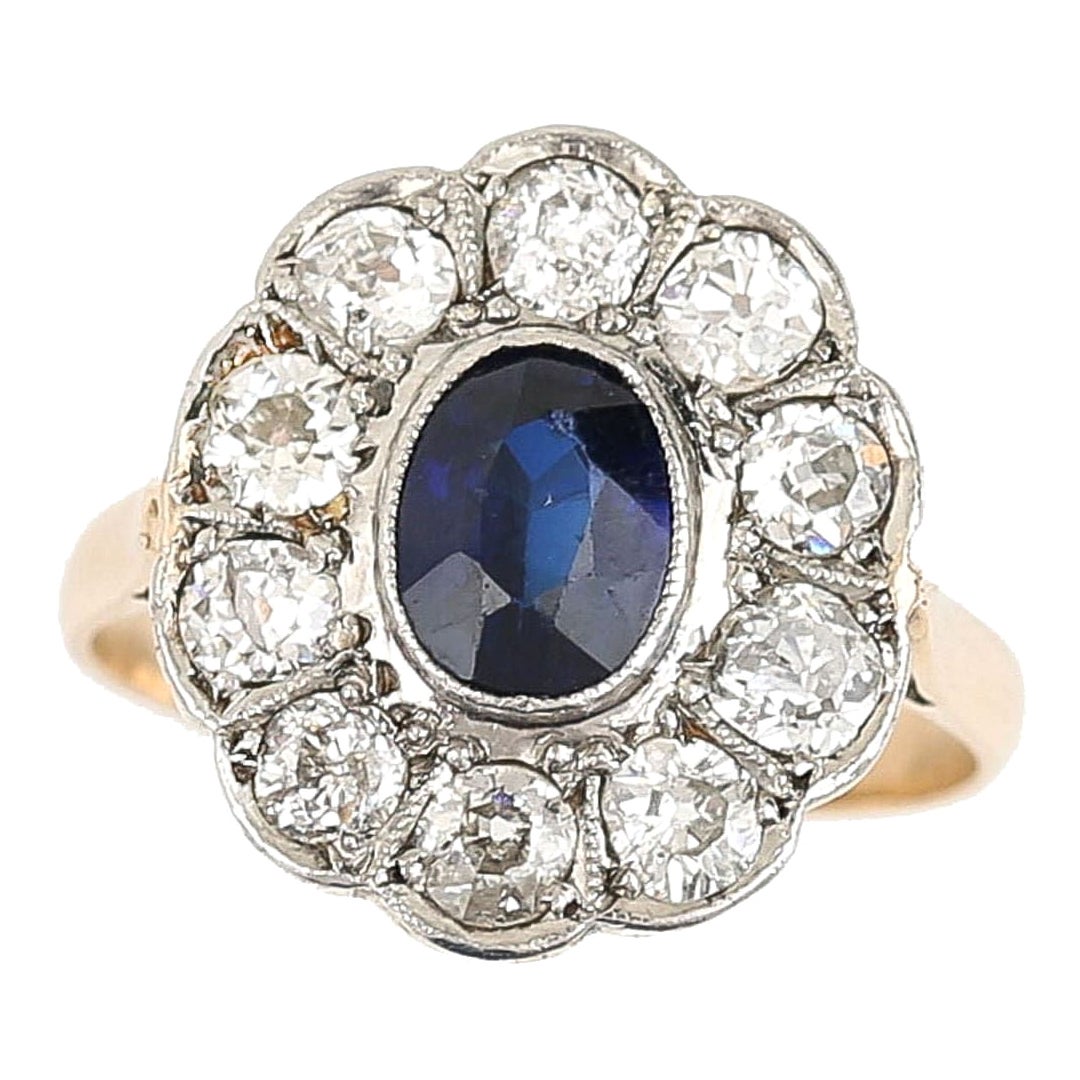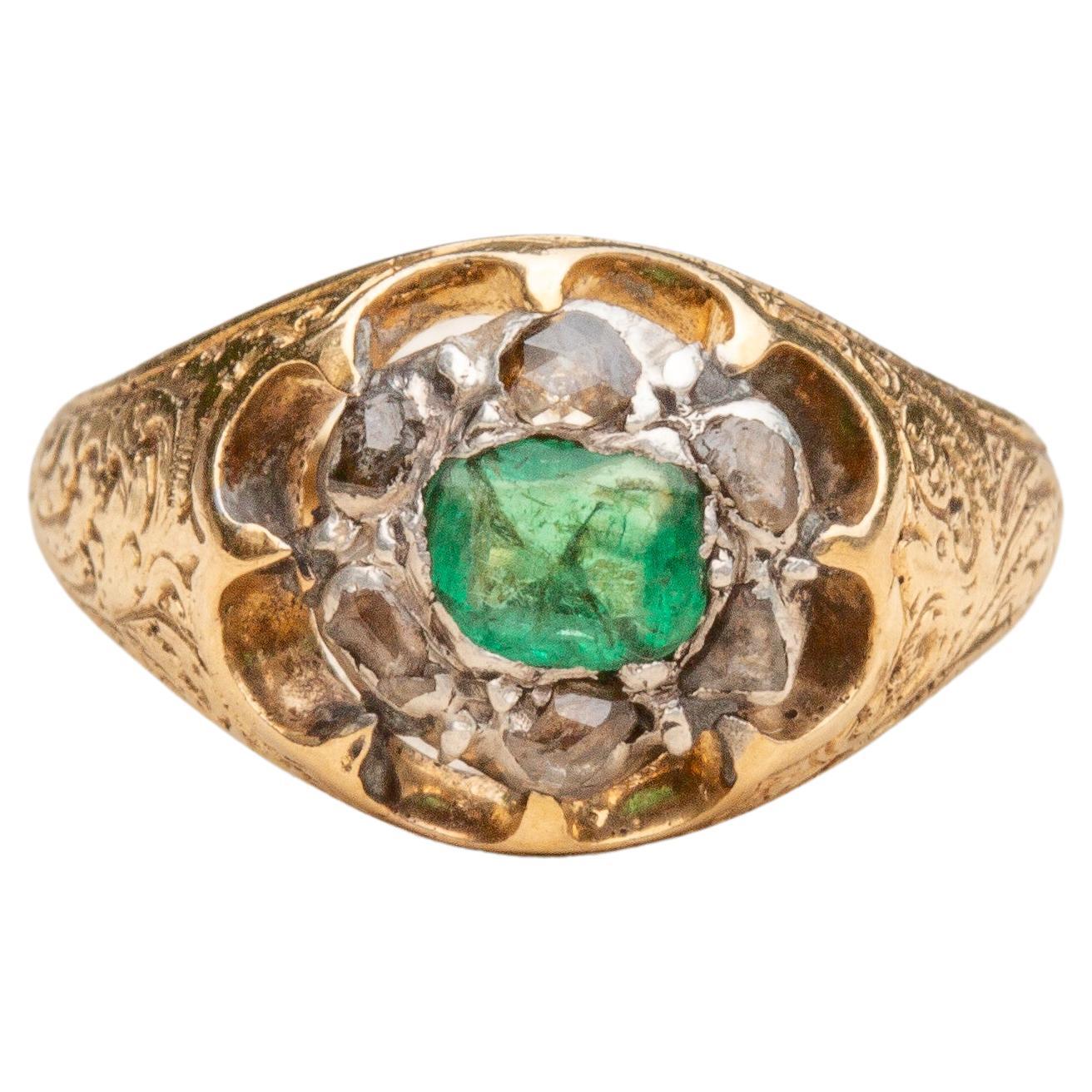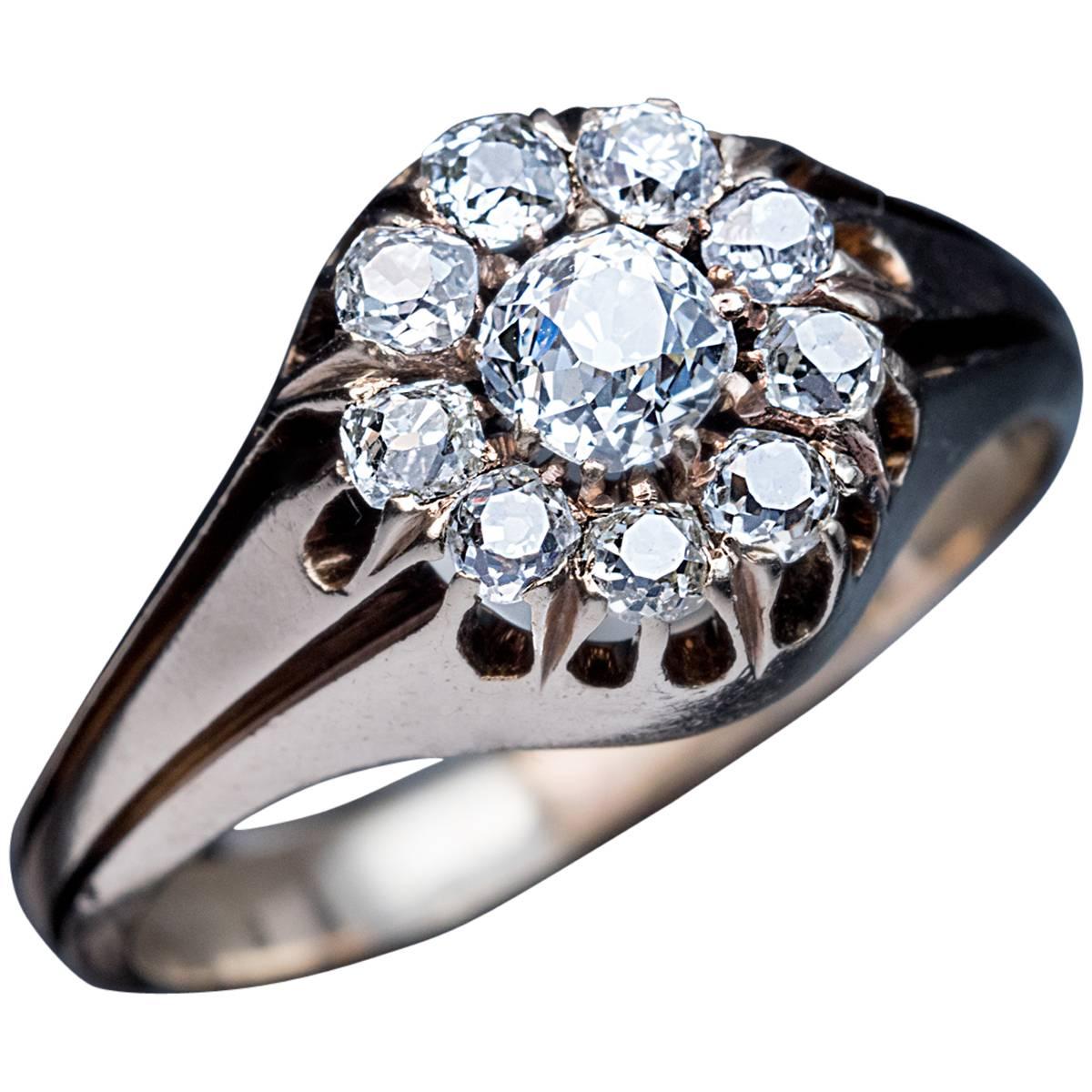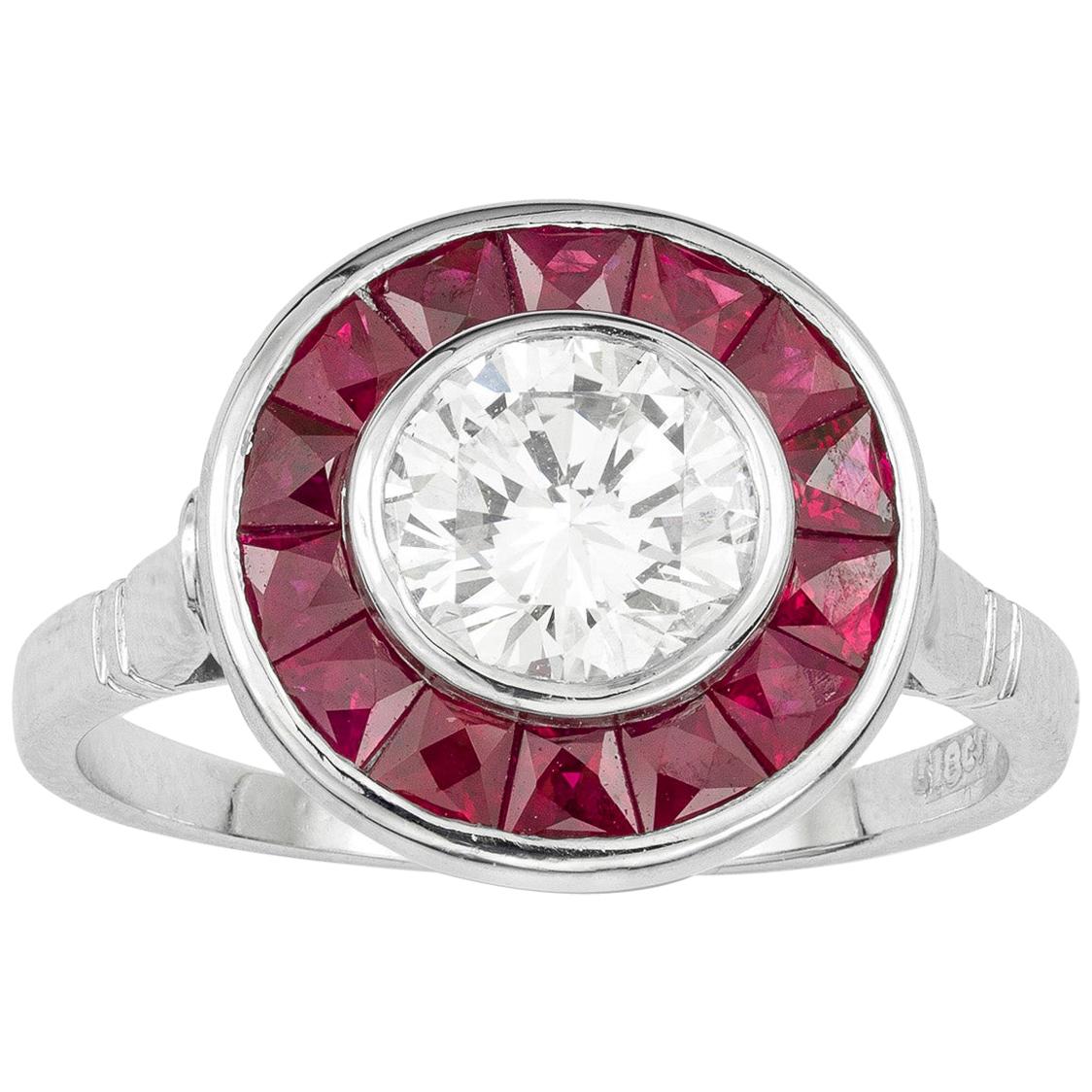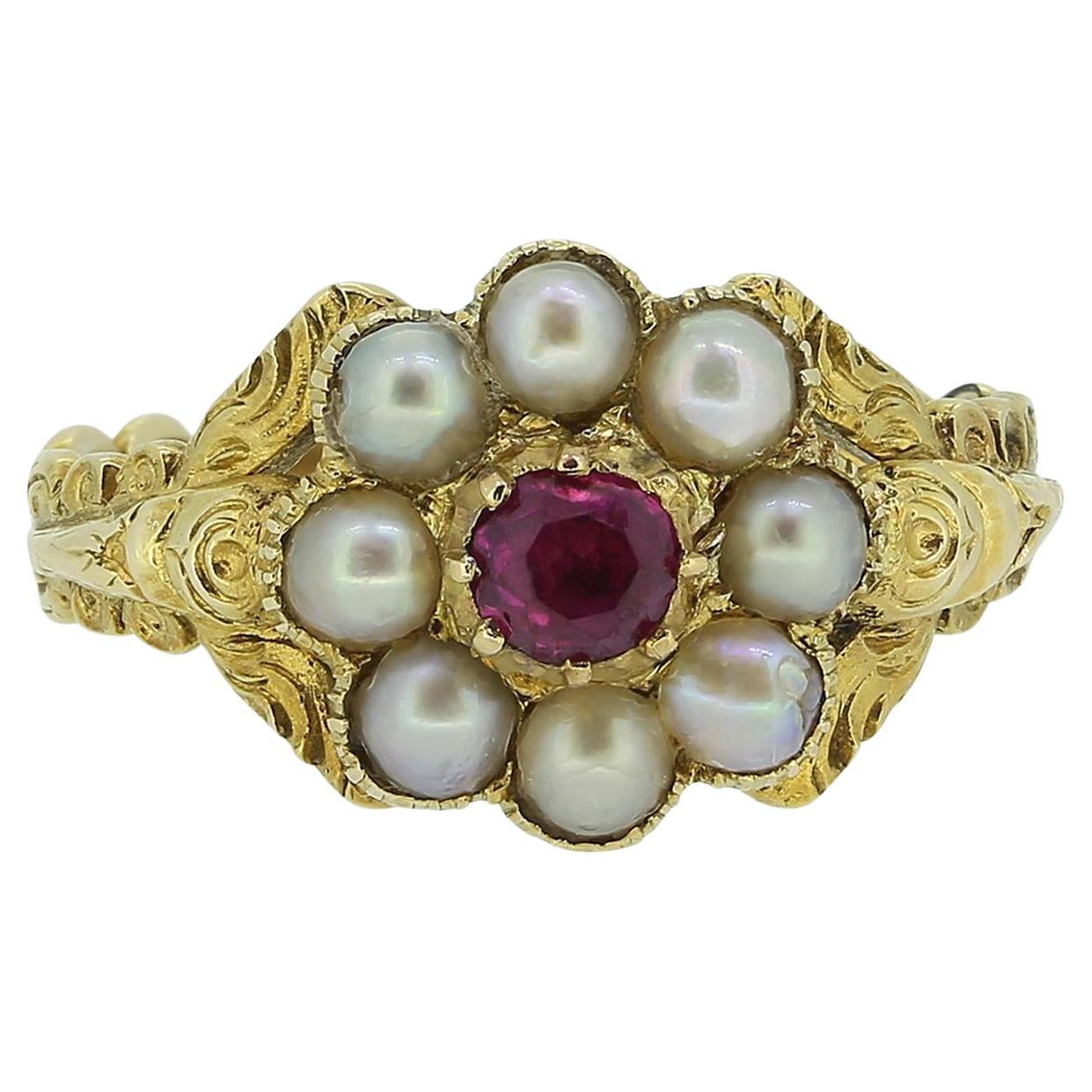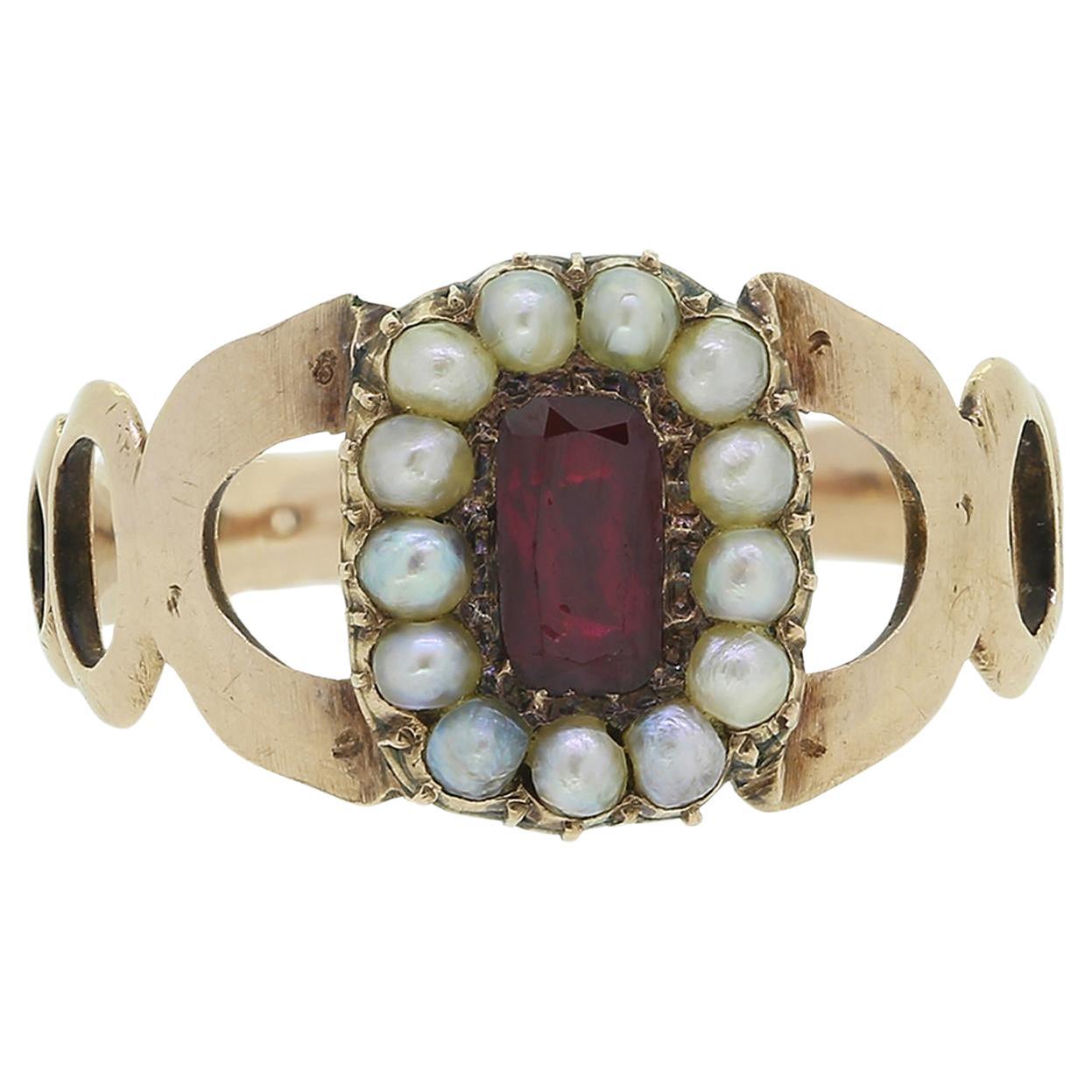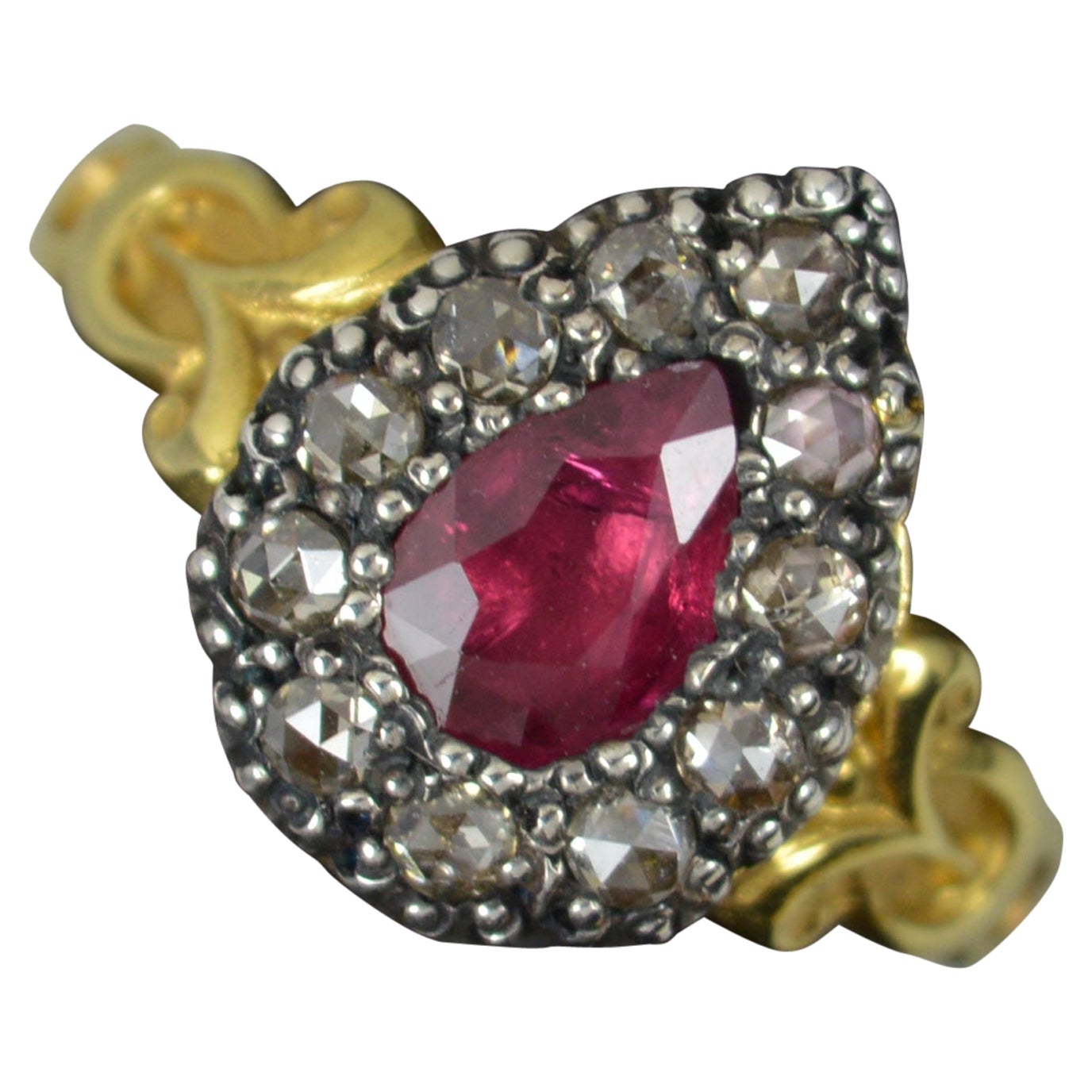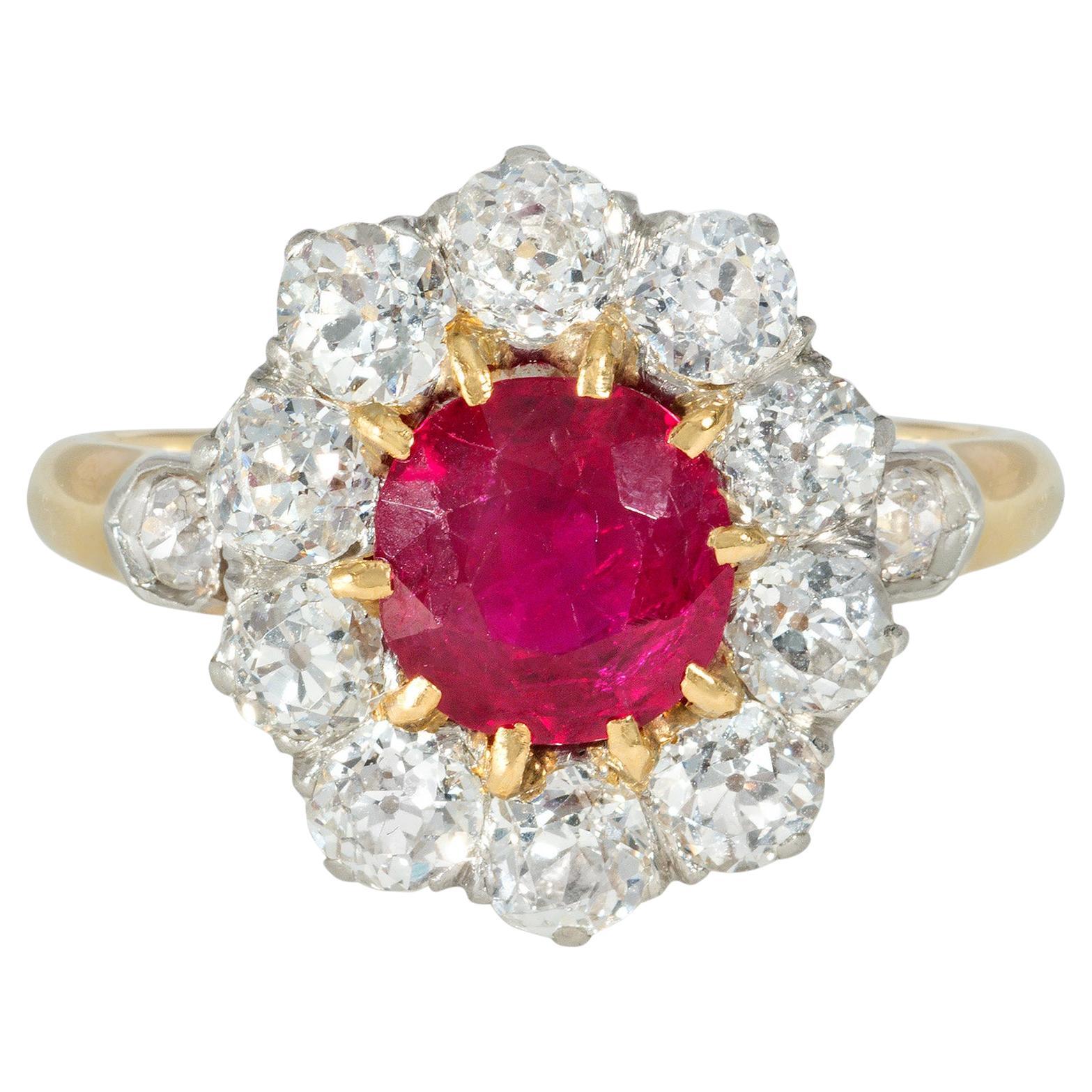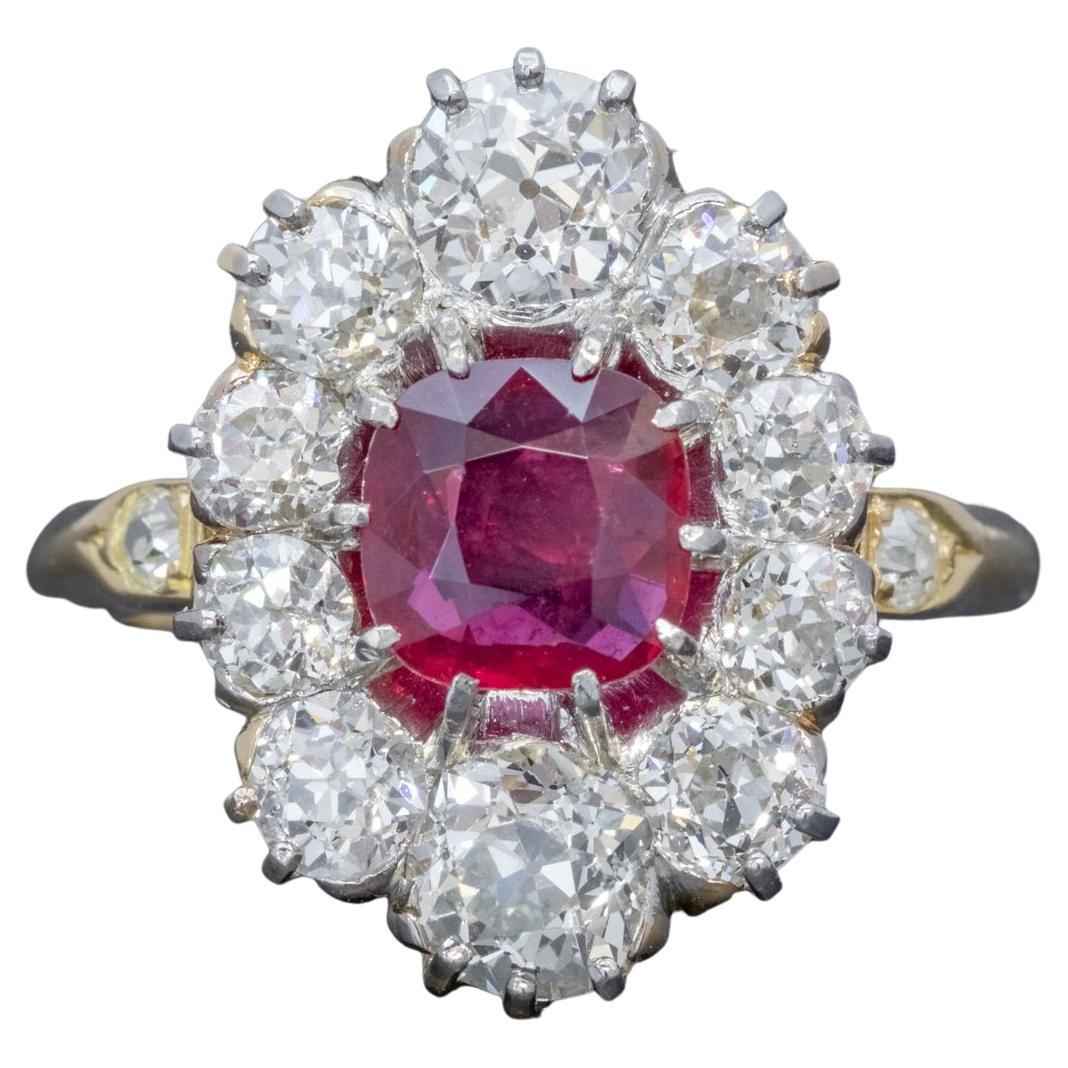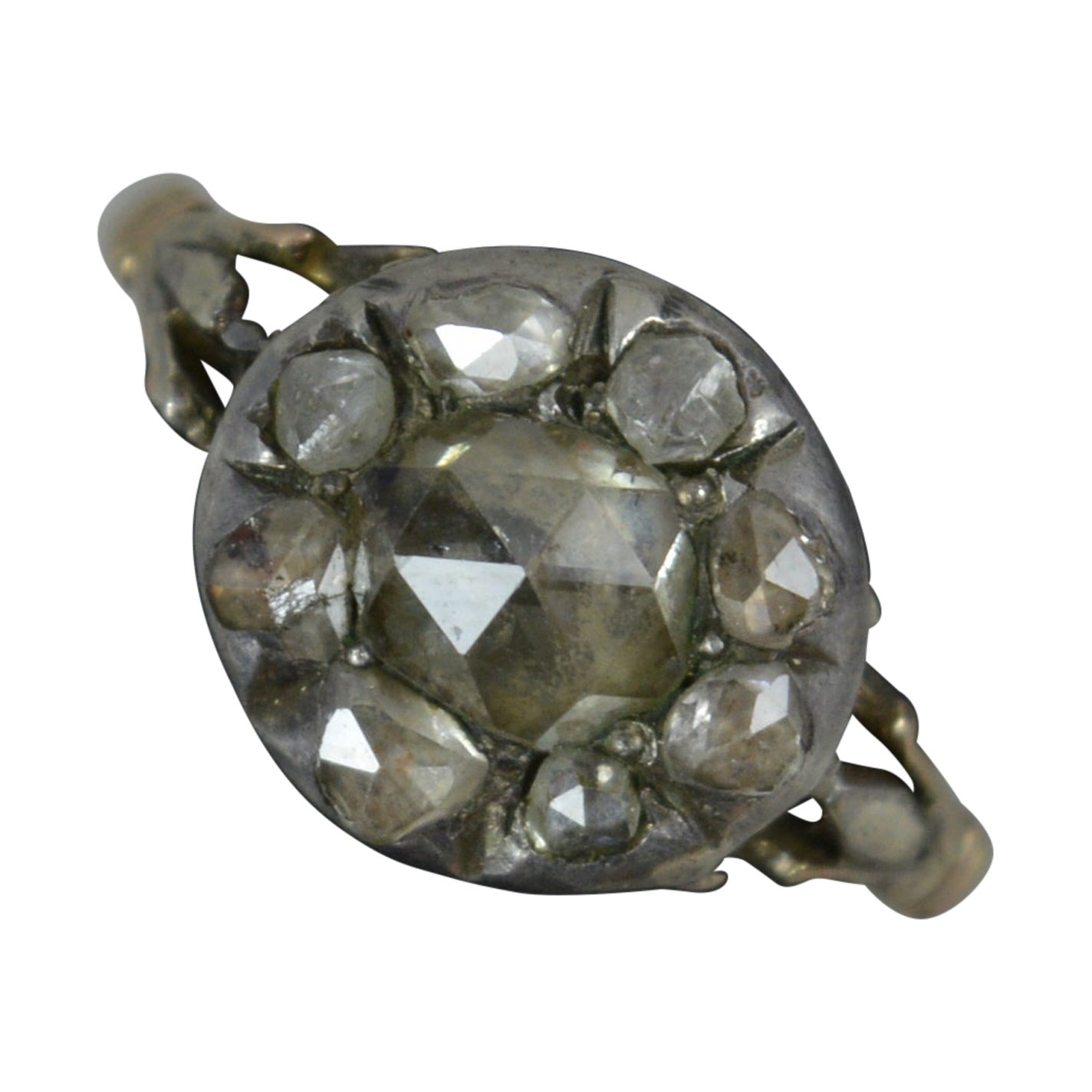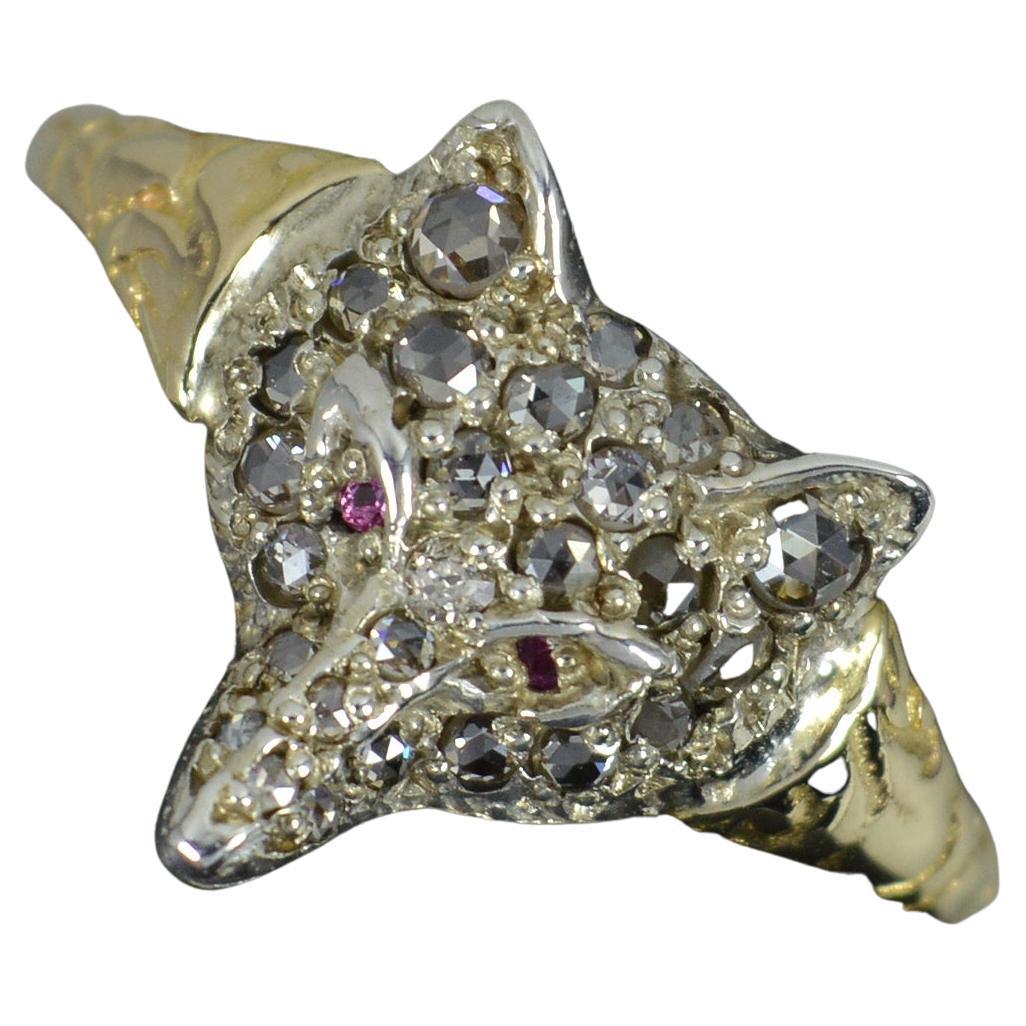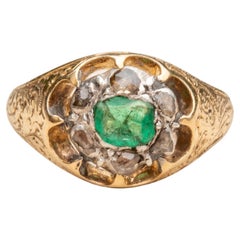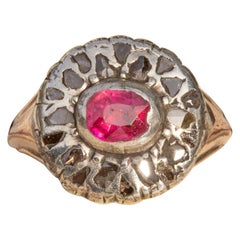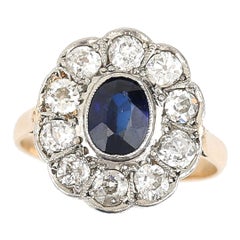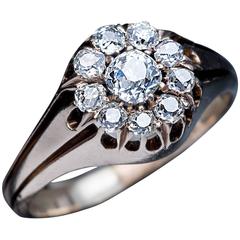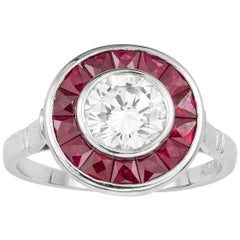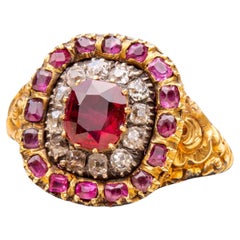
Antique Georgian Early 19th Century 1ct Ruby and Diamond Target Cluster Ring
View Similar Items
Want more images or videos?
Request additional images or videos from the seller
1 of 14
Antique Georgian Early 19th Century 1ct Ruby and Diamond Target Cluster Ring
About the Item
- Ring Size:7.75 US, Resizable
- Metal:
- Stone:
- Stone Cut:
- Weight:6.37 g
- Style:
- Place of Origin:
- Period:
- Date of Manufacture:1820
- Condition:
- Seller Location:London, GB
- Reference Number:1stDibs: LU2845222366272
About the Seller
5.0
Vetted Seller
These experienced sellers undergo a comprehensive evaluation by our team of in-house experts.
Established in 2019
1stDibs seller since 2022
32 sales on 1stDibs
Typical response time: 11 hours
More From This SellerView All
- Antique Georgian Early 19th Century 1ct Ruby and Diamond Target Cluster RingLocated in London, GBA superb antique Georgian ruby and diamond ring made in England, circa 1820. The centre of this ‘target’ shaped cluster ring is set with a 1ct cushion cut deep red ‘pigeon’s blood’ r...Category
Antique Early 19th Century English Georgian Cluster Rings
MaterialsDiamond, Ruby, 22k Gold
- Antique French Early 19th Century Emerald and Rose Cut Diamond Gold Cluster RingLocated in London, GBThis unusual antique emerald and diamond ring was made in France and dates to the early 19th century. In the centre rests a vibrant 0.3ct step cut emerald in an open-backed rubover silver setting. The stone is a wonderful vivid green colour and sits majestically within a halo of rose cut diamonds in closed-back and foiled rubover settings. The triangular facets of rose cuts were very popular during the Georgian and Victorian periods as they glistened more beautifully in candlelight than any other cut. The central cluster rests in a ‘belcher’ setting with 8 u-shaped curves to create a petal like design. The mount, crafted in 18K gold, is intricately engraved with foliate design and tapers towards the back of the ring with a D-shaped cross section. UK size T, US size 9.5. The ring weighs 7.03 grams, it is unmarked but tests as 18K gold. The ring is in good overall condition condition and the stones are securely set. There is some light wear to the gold as expected with rings of the age. The emerald displays a great colour with lots of natural inclusions; upon magnification, there is also a scratch to one of the corners of the table. The rose cut diamonds measure 2.5mm x 2mm across. The silver cluster measures 10mm in diameter. The ring sits fairly flat on the finger to allow for frequent wear, and the emerald is open-backed which makes it easy to clean! A truly gorgeous and highly unusual antique emerald cluster ring.Category
Antique Early 19th Century French Georgian Cluster Rings
MaterialsDiamond, Emerald, Gold
- Scarce Antique Georgian Pink Ruby and Diamond Floral Cluster Ring c 1800 ItalianLocated in London, GBThis unusual antique Georgian era floral ruby and diamond cluster ring dating to around 1800 was probably made in Italy. In the middle of the ring head lies a collet set and foil-backed bright pink ruby. It is surrounded by a sea of 20 flat-cut and closely set diamonds in a flower head cluster style. The raised ruby setting appears to fixed to the ring with a cut-down rivet which is visible on the smooth underside of the bezel. The rosy hued gold ridged shoulders taper down to the back of the shank. This elegant ring sits fairly flat on the finger to allow for frequent wear and is without doubt a particularly unusual and scarce example of its kind. UK size L 1/2, US size 6 4.72g, band tests as 14K gold, bezel tests as silver, ring head measures 14mm x 13mm. Each diamond measures between 1mm and 3mm. Approx 0.3ct...Category
Antique Early 1800s Italian Georgian Cluster Rings
MaterialsDiamond, Ruby, 14k Gold, Silver
- Antique Thai Siam 19th Century Gold Princely Gem-Set Cluster Ring Ruby EmeraldLocated in London, GBA rare late 19th century gem-set princely gold cluster ring made in Siam (Thailand). This gorgeous and colourful gem-set cluster ring is intricately crafted in high-karat gold, by t...Category
Antique 19th Century Thai Cluster Rings
MaterialsDiamond, Ruby, Emerald, Gold
- Important 19th Century Royal Siam Diamond Cluster Ring Museum-Grade ThaiLocated in London, GBAn outstandingly rare mid-19th century royal Siam diamond cluster ring, made by the royal goldsmiths of the court of Bangkok. This is an extremely fine example of the jewellery commissioned and subsequently bestowed by the Kings of Siam, principally to be worn by participants in royal and aristocratic life-cycle ceremonies in the courts of Bangkok. In the mid-19th century, King Mongkut (Rama IV) of Siam also commissioned the courtly jewellers to create a number of faithful replicas of these ceremonial jewels to be offered as gifts to diplomatic families, important visitors and to Heads of State across the world when re-establishing diplomatic relationships. One such example (which is remarkably similar to the present ring) resides in the museum of the Château de Fontainebleau (item F1518C) where it was given as a gift from King Mongkut to Napoléon-III on the important ambassadorial visit of 1861 (see photos for a side by side comparison). Ceremonial Use: During the 19th century, many rings were made every year by the royal jewellers for ceremonial use. Examples of these lavish cluster rings being worn for these life-cycle ceremonies can be seen on old photos and paintings of the Royal Tonsure Ceremony, also known as ‘the cutting of the top-knot’ ceremony, which marked the transition from childhood into adulthood for all of the (many!) sons and daughters of the Siam royal family. The huge expansion in the number of royals in 19th century Siam stemmed from Kings Mongkut (Rama IV) and Chulalongkorn (Rama V) being highly polygamous. They had a joint total of 124 wives and 159 royal children, each requiring their own ceremonial regalia and princely jewels. As a result, Bangkok became home to some incredibly skilled goldsmiths in this period. The Tonsure ceremony was performed by the King, and lasted three days and three nights. All of the royal children would be dressed in the most splendid costumes and adorned with a vast amount of jewels on several parts of the body. Their costumes and jewels differed according to their title and rank. Diamonds for instance, would be bestowed to the highest ranking noble children. The royal children were allowed to keep their regalia and jewels as a present on entering adulthood to indicate their social status among society. Over the years, these royal jewels have been dispersed across the many noble families, with currently only a few important pieces remaining in the royal collection. Today, the number of royals in Thailand is contracting as the country follows the Chinese nobility system whereby with each generation the noble rank of a family decreases by one ranking so that eventually the majority of descendants will lose their noble status completely. This loss of royal privilege, coupled with the dilution of wealth has meant that items such as this ring become available on the open market. Following the end of the absolute monarchy in Thailand in 1932, many members of the royal family relocated to Europe and as a consequence, princely Thai items can occasionally be found in the European art market. Gift Exchange: In Siam culture, great importance is placed on the ancestral process of gift-exchange. During the reign of King Mongkut, close relationships with some powerful countries were cultivated in order to hold the balance of power and to save Siam from being colonised. The King used gift-exchange to establish diplomatic relations with other heads of state around the world, as well as with other kings, princes and sultans closer to home. He sent troupes of ambassadors to England (1857) and France (1861) with seemingly endless amounts of trunks filled with lavish gifts in order to dazzle the heads of state with the extraordinary quality and variety of Siam craftsmanship. These gifts consisted of faithful replicas of the Royal Regalia and objects belonging to the King himself; items and jewellery worn by him on his Tonsure ceremony and on his coronation day. Enormous time and effort was required by the Siam court to assemble these numerous gifts, as they emanated from the very same royal goldsmiths and courtly craftsman who had made the original ceremonial items. The most famous of these ceremonies took place at the Chateau de Fontainebleau in 1861. The painting by Jean-Léon Gérôme that immortalised the event prominently features the most spectacular of these gifts. Among the 150 gifts presented to Napoléon-III by the Siam ambassadors were two diamond-set rings, both of which are on display in the Musée du Chateau de Fontainebleau (item no. F1518C and F1519C). One of these rings is a rose cut diamond cluster and bears a striking resemblance to the ring we are offering. According to Bruley (2011), this ring, presented to Napoleon-III, was a faithful replica of the ring worn by King Mongkut on his own coronation day in 1851, which now resides in the Pavilion of Royal Regalia in Thailand. The Ring: From whichever angle the present ring is viewed, it is a masterpiece of design and a testament to the ingenuity and craftsmanship of the Siam royal goldsmiths. The bezel head is composed of two layers, the uppermost, containing the large triangle shaped table-cut diamond, is riveted to the main body of the ring. The second layer of the cluster is set with a further eight rose cut diamonds and this section allows for small rotation, typical of Siam jewellery...Category
Antique Mid-19th Century Thai Victorian Cluster Rings
MaterialsDiamond, 22k Gold
- Antique Mid-19th Century, French 18K Agate and Rose Cut Diamond Cluster RingLocated in London, GBThis stunning antique cluster ring was made in France and dates to around the mid 19th century, circa 1860. In the centre rests a smooth banded agate in an open back setting, encircled by a halo of rose cut diamonds in closed-back, cutdown silver settings with a combined approximate weight of 0.15 carats. The ring has a decorative pierced gallery in the form of crescents and a solid semi-circular shank. The shoulders are decorated with two applied fleur-de-lis, each set with rose cut diamonds in silver settings. The main colour of the milky agate is a creamy-brown hue with a darker brown band on one side. The diamonds are rose cut, the triangular facets of these cuts were very popular during the Georgian and Victorian periods as they glistened more beautifully in candlelight than any other cut. This elegant ring sits flat on the finger, the stones are secure in their settings and the ring is in superb condition despite its significant age, a truly rare find! UK size U / US size 10, 5.44g, French ’tête...Category
Antique Mid-19th Century French Victorian Cluster Rings
MaterialsAgate, Diamond, 18k Gold
You May Also Like
- Edwardian 18ct Gold 1ct Sapphire and 1ct Diamond Cluster Ring, Circa 1910Located in Lancashire, OldhamA fabulous early 20th century 1ct oval blue sapphire and 1ct transitional cut diamond halo cluster ring, set in 18ct gold dating from circa 1910. The central set oval sapphire is a deep, violet blue and is rub over set and is surrounded by 10 hand set transitional cut diamonds totalling 0.1ct each which complete the timeless 'Princess Diana' style halo to full effect. The gallery is beautifully carved adding that extra sign of quality to the ring. Overall a delightful Edwardian antique ring...Category
Vintage 1910s Edwardian Cluster Rings
MaterialsDiamond, Blue Sapphire, Gold, 18k Gold, Yellow Gold
$2,802 Sale Price20% OffFree Shipping - 19th Century Antique Diamond Gold Men’s Cluster RingLocated in Chicago, ILMade in Moscow between 1882 and 1898 A classical Victorian era 14K gold cluster ring is centered with a sparkling bright white antique cushion cut diamond (measuring 4.7 x 4.7 x 3...Category
Antique Late 19th Century Russian Victorian Cluster Rings
MaterialsDiamond
- Diamond and Ruby Target RingLocated in London, GBA diamond and ruby target ring, rubover-set to the centre with a round brilliant-cut diamond weighing 1.1 carats surrounded by calibre-cut rubies, all...Category
2010s British Modern Engagement Rings
MaterialsDiamond, Ruby, 18k Gold
- Georgian Ruby and Pearl Cluster RingLocated in London, GBHere we have a fabulous cluster ring originally dating back to the Georgian period. A single round faceted ruby sits slightly risen at the centre of the face and is circulated by an ...Category
Antique 18th Century Georgian Cluster Rings
MaterialsPearl, Ruby, 15k Gold, Yellow Gold
- Georgian Ruby and Pearl Cluster RingLocated in London, GBHere we have a charming cluster ring originally dating back to the Georgian period. A single elongated oval faceted ruby possessing a rich red colour tone sits at the centre of the f...Category
Antique 18th Century Georgian Cluster Rings
MaterialsPearl, Ruby, 9k Gold, Yellow Gold
- Georgian Design Foiled Ruby and Rose Diamond 18ct Gold Cluster RingLocated in St Helens, GBA Georgian design contemporary ring. Solid 18 carat yellow gold shank and silver head setting. Set with a pear shape 5mm x 7.25mm ruby in foiled back setting. Surrounding as 10 rose ...Category
20th Century Cluster Rings
MaterialsDiamond, Ruby, Gold
